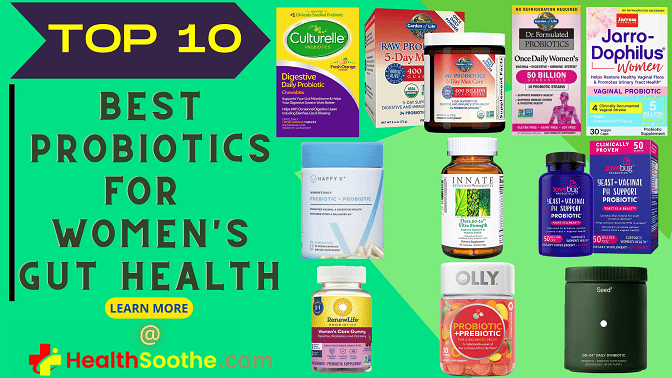With the rise in processed food, overconsumption and stress, it’s no wonder that gut issues are on the rise, too. Indeed, tummy troubles are among the most common health issues out there — a reported 60 to 70 million Americans suffer from a digestive disease — and they can have a huge impact on quality of life and general wellness. That’s why it’s crucial that we do everything we can to help counteract the problem. One of the best ways to support the gut is with probiotic supplements.
In this article, we’ll go over the basics of probiotics to help you understand what they do and how they can lead to better health.
What Are Probiotics?
To put it simply, probiotics are the good bacteria and live yeasts that help keep the bad bacteria throughout your body in check. They are found naturally within our bodies as well as in foods, supplements and even some beauty products. Probiotics differ from prebiotics, which serve as a source of food for the probiotics within your gut. Because they enhance the benefits of good bacteria, prebiotics and probiotics supplements are often taken together.
How Probiotics Improve Health
Probiotics hold a lot of promise for human health because they naturally support gut health and the immune system. Most importantly, they keep all kinds of bad bacteria and pesky yeast under control, helping to ward off disease, infection and chronic gut issues. Some studies suggest that the gut microbiome plays a role in obesity as well and, though more research is needed, probiotics may be used in its treatment.
Probiotics’ most well-known and well-studied benefits happen within the digestive tract. The gut itself contains about 100 trillion bacteria, both good and bad, that makes up a complex system known as the gut microbiome. Without the good bacteria, the bad bacteria are allowed to take over, which can trigger gut issues. People who have chronic gut issues may find that boosting probiotic consumption can help.
 Source: sdecoret/Shutterstock.com
Source: sdecoret/Shutterstock.com
For example, there are many probiotics for leaky gut syndrome that can help weed out bad bacteria and reseed good ones. In addition to eliminating the harmful stuff, probiotics can also help improve gut health by helping your body better digest food and break down and absorb medications. Although more research is needed, probiotics may help with diarrhea, constipation, irritable bowel syndrome (IBS), inflammatory bowel disease (IBD) and other common digestive conditions.
But probiotics’ benefits don’t stop in the gut. Some research suggests that they may help support the immune system. This is because they aid in the creation of vitamins that your body can use to ward off disease. What’s more, probiotics are excellent at fighting off the disease- and sickness-causing bacteria that gets out of control when you don’t feel well. They can also prevent the overgrowth of yeast, which can cause yeast infections and oral thrush.
Probiotics may also be able to help keep gum disease and eczema under control. In both conditions, problems arise due to an overgrowth of harmful bacteria (gingivalis in the case of gum disease and staphylococcal bacteria in the case of eczema). Introducing extra probiotics into your system may prevent these problems from arising or help get them under control during treatment.
How to Get Enough Probiotics
Luckily, introducing probiotics into your daily routine is surprisingly simple if you know what foods and supplements to take. Probiotics contain bacteria and yeast, including the common bacteria lactobacillus and bifidobacterium and yeast known as saccharomyces boulardii. If you’re brand-new to probiotic foods and supplements, look for these strains on packaging.
- Take a Probiotic Supplement — Probiotic supplements are an easy way to keep a healthy microbial balance each day. You can even eat quick snacks like probiotic gummies throughout the day to keep a healthy diet. They may be an ideal option for people on restricted diets, who don’t like fermented foods or who simply want an easy way to ensure that they’re getting the right dose each day.
- Add Live Cultures to Your Diet — Yogurt and fermented foods and drinks such as kefir, kombucha, pickles, sauerkraut, tempeh, miso and others are rich in live cultures that can help quell the proliferation of bad bacteria throughout the body. Adding a few of these items into your diet is an easy way to up your probiotic intake. When scouring the grocery store for good probiotic foods, make sure to choose products that have the words “live and active cultures” on the label.
- Take the Right Kind — When shopping for probiotic supplements and foods, you’ll notice that there are many different strains from which to choose. Paying attention to strain is important, as specific strains have specific benefits. Make sure to do your research on the different options and talk to your doctor or dietitian before deciding on a specific strain.
- Take the Right Amount — Probiotics are measured in colony-forming Units (CFUs). According to the American Academy of Family Physicians (AAFP), the recommended daily dosage of probiotics depends on the probiotic strain. The AAFP recommends taking 10 billion CFUs of Lactobacillus rhamnosus GG, between 100 million and 35 billion CFUs (depending on preparation) of lactobacillus/bifidobacterium and 250 to 500 MG of saccharomyces boulardii.
 Source: Stephanie Frey/Shutterstock.com
Source: Stephanie Frey/Shutterstock.com
A Promising Health Booster
There’s no magic pill for tummy troubles or overall health, but probiotics bring a lot of promise for those who suffer from chronic discomfort. Integrating more good bacteria into your digestive ecosystem, whether through supplements or food, is a great way to keep your gut health in perfect harmony and arm your body with the tools it needs to ward off disease, discomfort and infections.
Related reading
- How To Use Foods, Herbs, and Supplements to Recover From Sicknesses Naturally
- African Traditional Fermented Foods and Probiotics


